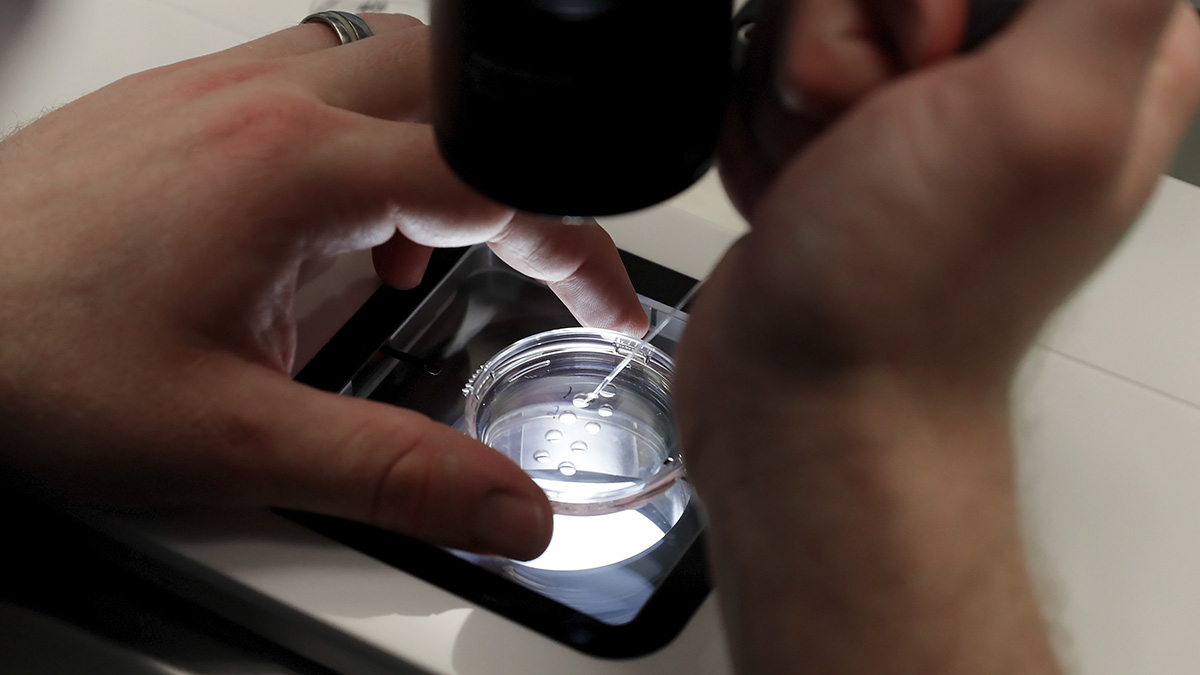
Iowa Republicans passed a personhood bill in the state House on Thursday night that would make it a felony to “cause the death” of an “unborn person,” putting the conservative Midwestern state directly into the national battle over protections for in vitro fertilization.
The bill in its current form does not provide any protections for embryos created via IVF — which, according to Democrats in the state and reproductive rights advocates, means the measure could easily be interpreted as criminalizing IVF care and services.
Passage of the bill by the GOP-controlled state House makes Iowa the latest state where lawmakers have taken steps that could threaten IVF. The procedure involves the creation of embryos outside the body, and many are often discarded if not used.
The vote in Iowa came just hours after Republican lawmakers in Alabama — trying to curtail the fallout over a state Supreme Court ruling that said embryos are children — enacted a bill intended to protect IVF. The Alabama court’s ruling has prompted broader concerns that conservative measures targeting abortion elsewhere would also go after the fertility procedure.
To be enacted, the Iowa bill would still have to be passed by the state Senate and signed by Republican Gov. Kim Reynolds.
A spokesperson for Reynolds didn’t respond to questions about whether she supported the bill.
The Iowa bill in its current form states that “a person who causes the death of an unborn person without the consent of the pregnant person” is “guilty of a class ‘A’ felony” and that “a person who unintentionally causes the death of an unborn person” is “guilty of a class ‘B’ felony.”
A class A felony is the most serious criminal offense under Iowa state law and is punishable by up to a mandatory life sentence without the possibility of parole. A class B felony under Iowa law is punishable by up to 25 years in prison.
The bill defines an “unborn person” as a human “individual organism” from “fertilization to live birth.”
In its current form, the bill does not include any protections that would specifically or broadly apply to IVF.
For example, the bill does not include language that many reproductive rights advocates have said serves as protection for IVF, like clarifying that the term “unborn person” refers to being “in utero” or “carried in the womb.” Reproductive rights advocates say those phrases serve to make such statutes enforceable only in situations where the embryo or fetus is being carried in the womb — not outside the womb, as is the case in the early phases of IVF.
The bill was sponsored by the Republican-controlled House Judiciary Committee, not individual lawmakers. The Republican leaders of that committee — state Reps. Steven Holt, the chair, and Bill Gustoff, the vice chair — didn’t respond to questions from NBC News.
Democrats said the move to pursue the bill ignored the national fallout over the IVF restrictions that arose from the Alabama Supreme Court’s ruling last month.
“Iowa Republicans will stop at nothing to ban abortion, even if it means criminalizing people undergoing IVF treatments,” Iowa state Rep. Jennifer Konfrst, the Democratic minority leader, said in a statement to NBC News. “The Alabama-style bill Republican politicians passed this week goes too far and Iowans are tired of politicians taking away their reproductive freedom.”
Planned Parenthood Advocates of Iowa spokesperson Mazie Stilwell called the bill “shameful” and “reckless,” and said it was the latest step in Iowa Republicans’ “far-reaching, long-term strategy to undermine the rights and well-being of pregnant Iowans.”
National groups weighed in as well.
“In a country full of Republican legislators trying to outdo each other in rolling back fundamental freedoms, this Iowa bill shows that what happened in Alabama last month doesn’t just stay in one state,” said Heather Williams, president of the Democratic Legislative Campaign Committee, the national Democratic arm that helps oversee state legislative races.
The personhood bill in Iowa is one of several that reproductive rights groups have said could be interpreted to restrict IVF treatments if enacted.
The Alabama Supreme Court ruling established that embryos created through IVF are considered children, prompting several IVF clinics in the state to halt their services and igniting a tumultuous weekslong sprint by lawmakers in the ruby-red state to contain the backlash.
Ultimately, Alabama GOP Gov. Kay Ivey signed a narrowly tailored, Republican-proposed bill Wednesday night intended to protect doctors, clinics and other health care personnel who provide IVF treatment and services by offering such workers civil and criminal “immunity.”
This story first appeared on NBCNews.com. More from NBC News:



